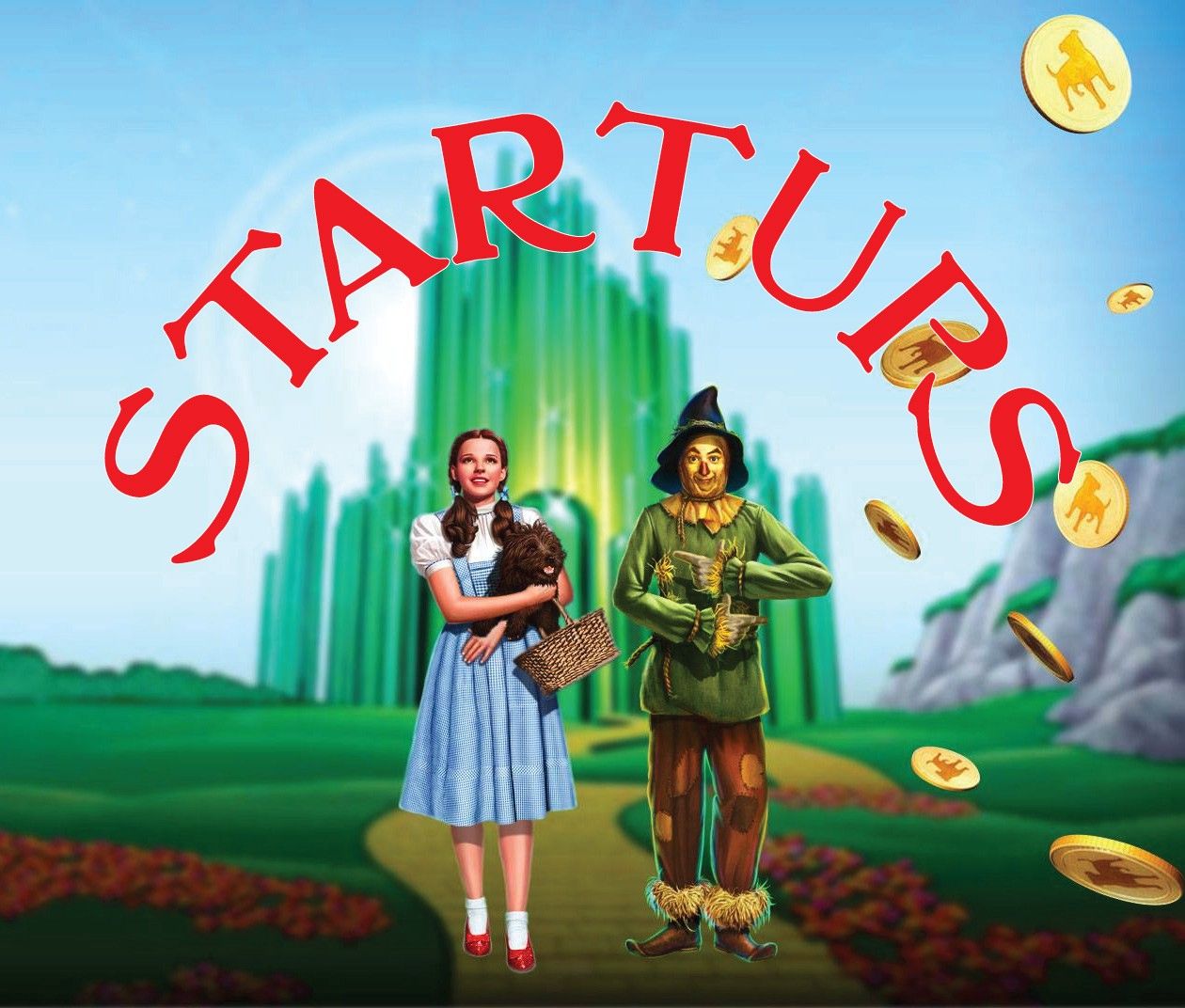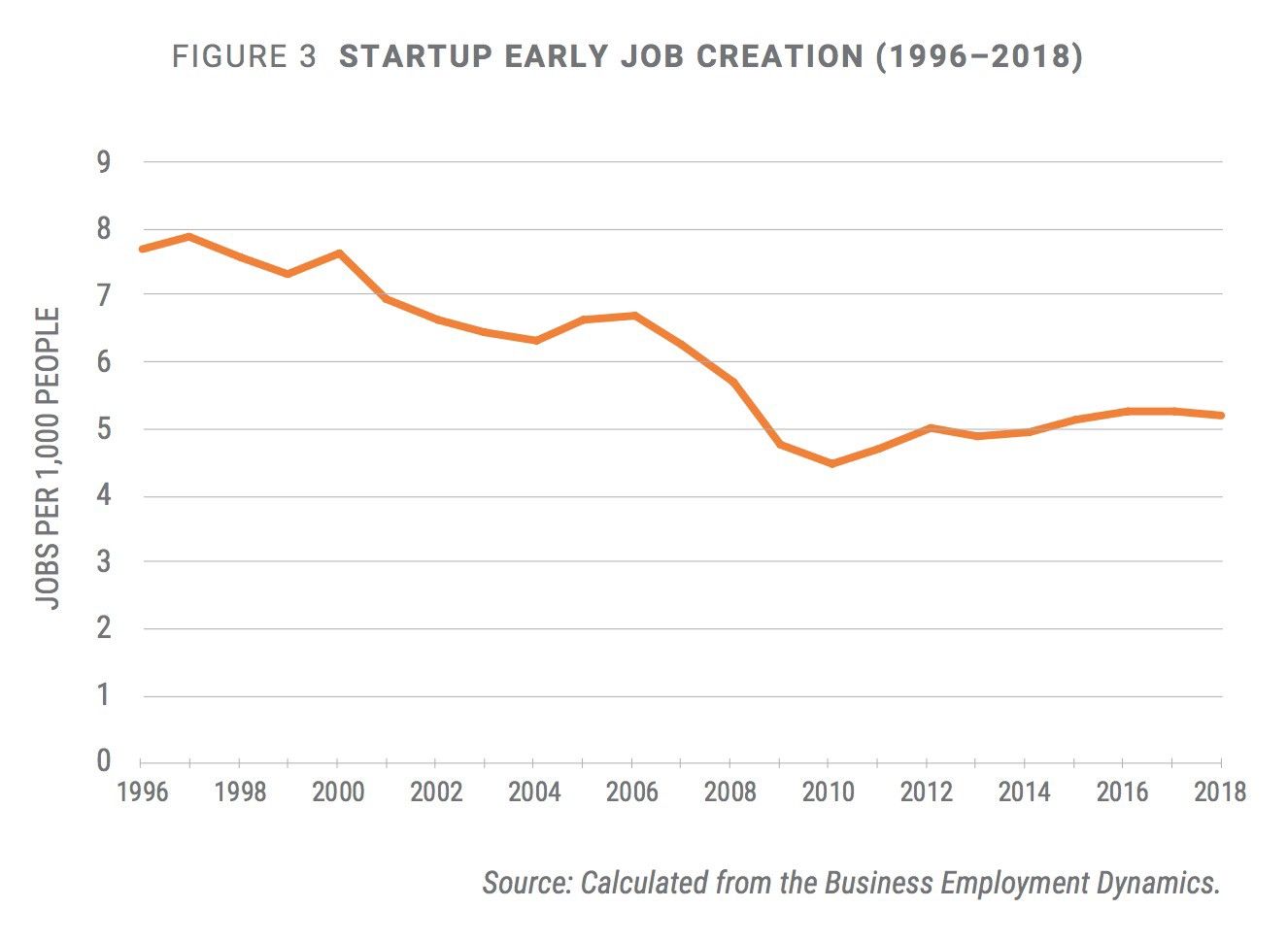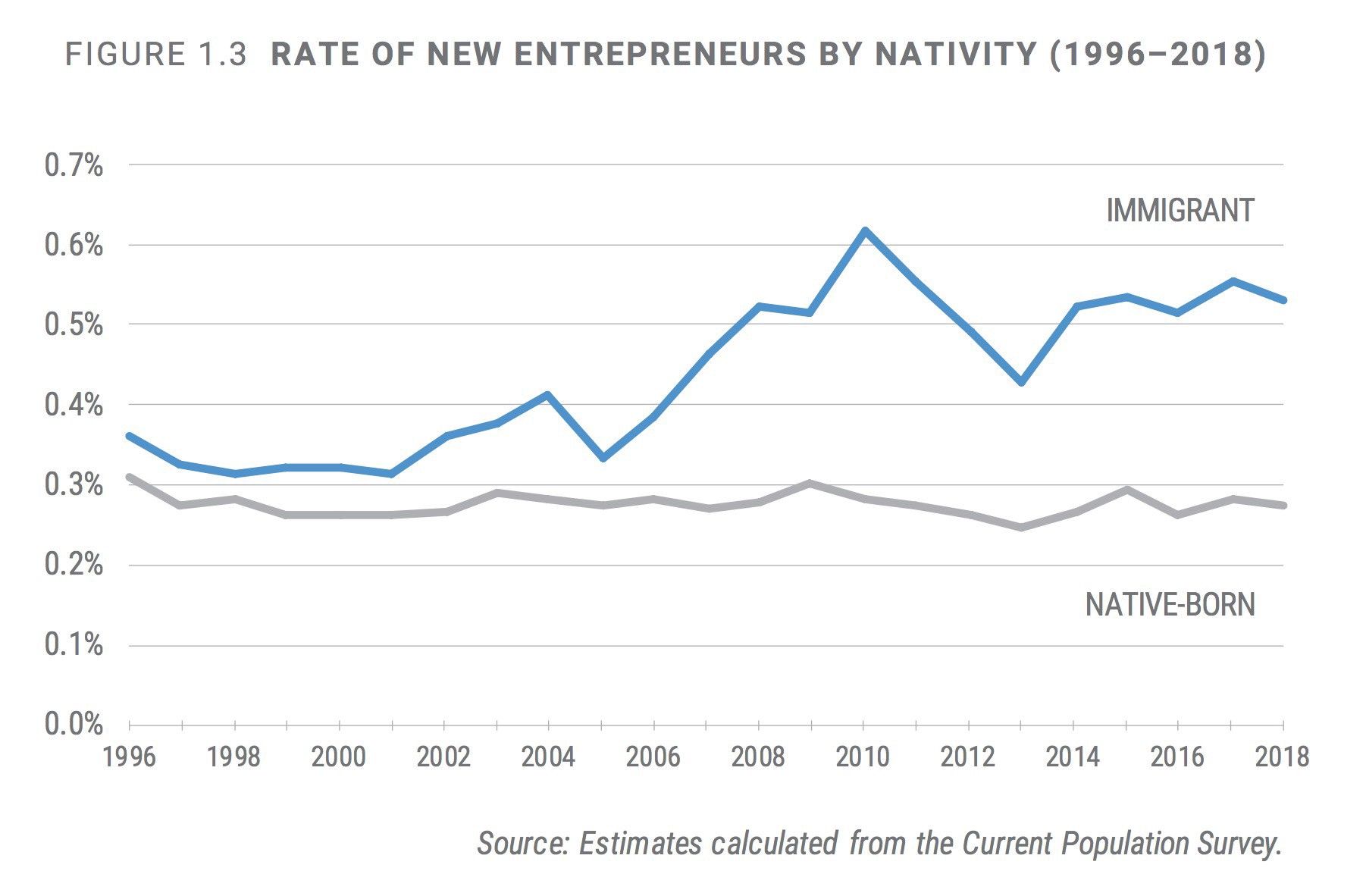This Is the Worst Time for Startups
New businesses have declined 44% since the 1970s.

This is the age of startup hype, but it’s not the age of startups. In the 2010s, 44% fewer businesses were started than it was in the late 1970s. These new businesses are also generating far fewer jobs.
Entrepreneurship has been in generational decline — new firms represented as much as 16 percent of all firms in the late 1970s, but declined to 8 percent between 2005 and 2010.
America has created a huge amount of hype around startups, but not a huge amount of startups. This is an age where new business creation has fallen by half, and dragged American jobs and wages down with it.
The great startup success stories actually bury the bodies of the thousands of startups they have killed. Facebook, Amazon, and Google have all killed small businesses as they acquired monopoly power. What’s left is a nation of gig-worker serfs, not small business owners and employees with benefits.
The decline in startups (which I’ll widely define as new businesses) has also meant a decline in jobs. New businesses account for nearly all net job creation in America. Without new businesses, there aren’t new jobs.

Between 2005 and 2010, the gross number of jobs created by new firms fell by more than two million. The companies that do open their doors hire fewer people.
One data series (BLS establishment data) showed that in the 1990s new establishments opened their doors with about 7.5 jobs on average, compared to 4.9 jobs today. (Kauffman.org)
As an example, no one needs a niche or even general publications when you can target people directly on Facebook and Google. So, journalism companies have disappeared. Newspaper publishing jobs declined by 56% since the 1980s, and they weren’t replaced by digital. Since 2008, journalism jobs overall have declined by 25%.
No one needs mom-and-pop stores or retail outlets as much since Amazon came around, so retail jobs are also in decline. And this loud sucking sound isn’t just coming from the new monopolies, old school manufacturing has been hit hardest of all.
Globalization without free movement of people has created a vacuum that sucks out jobs. Trade can move across borders but people cannot. Hence poor people are trapped in poor countries, where they can be exploited. If there was free movement of people, workers could move to higher wages. Instead, lower wages move to them.
The problem is not globalization, it’s that globalization did not go far enough. America did free trade without free movement, and the results have been not good for them. The fact is that immigrants drive growth. The rate of new business creation among American immigrants is double that of native-born.

Furthermore, what is called unskilled labour is actually the engine of economic prosperity. Poor people. Poor people are great immigrants. They provide cheap labour that can drive everything from farming to manufacturing. However, because Americans don’t want to see poor, brown people — the jobs have been outsourced abroad. America could have let the people in and kept the jobs. And created even more businesses.
The racist and classist distortion of a truly free market has lifted millions out of poverty in Asia, but also pulled manufacturing jobs and knowledge away from America. Now foreign firms have the skills and know-how and are leading in job creation. A few Americans are fronting ‘brands’ while most of the manufacturing and even design work is outsourced. The supply chain is where many new businesses are, and that’s somewhere else.
In a great paradox, immigrants do not take American good jobs when they come, they do that by staying where they are. If workers were able to move freely across the world, wages and labour conditions would rise. Instead, jobs just sink to the lowest common denominator. Free trade without free movement has been a gain for big business, but a drain for new business and the American worker.
This has now become a vicious cycle of decline, globalization sucked jobs out of America making people feel afraid, which the issue is really that globalization didn’t go far enough. And in response, America retreats into xenophobia, making the problem worse. And they’re watching the wrong metrics, yes the stock market and profits are up, but that money is increasingly held in foreign tax havens and not taxed.
Hence America thinks it’s booming while it’s increasingly a rich country full of poor people. America thinks that startups are growing when new business creation is lower than ever. It looks like the best of times for startups, but it’s the worst. And that’s bad for the American economy in general.
Further Reading:
- Starting Smaller; Staying Smaller: America’s Slow Leak in Job Creation. Kauffman Foundation.
- Unremarkables. Scott Galloway.
- The Importance of Young Firms for Economic Growth. Kauffman Foundation.